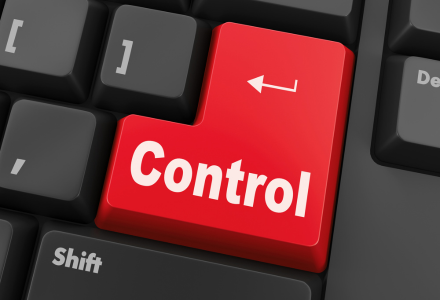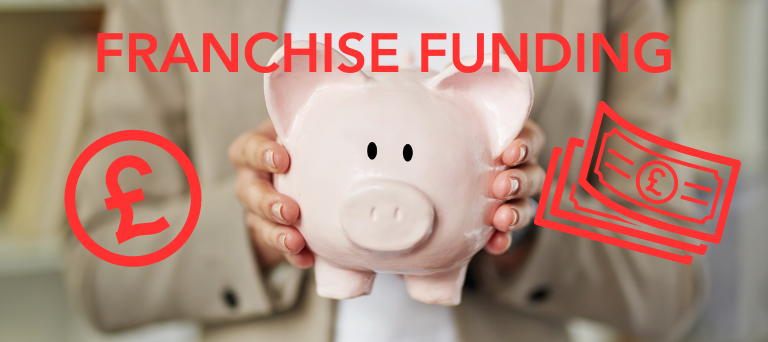When deciding between starting your own independent business or buying a franchise, there are many factors to consider, including the satisfaction of franchisees with their franchisors. In this post, we’ll explore what makes franchises different from going it alone and starting your own business.
Pros of Starting Your Own Business from Scratch

Starting a small business from scratch is not for the faint of heart, but it does come with its own set of advantages for entrepreneurs and independent businesses. For one, you’ll have complete control over your startup. You get to make all the decisions, from the name of the business to the products and services you offer. This can be a powerful feeling, knowing that the success of your small business rests entirely on your shoulders.
In addition to control, starting from scratch also gives you the potential for higher profits since you don’t have to pay royalties to a franchisor. This means that you get to keep more of the money you earn and reinvest it back into your business.
Launching your own startup business also allows you to build your business from the ground up. You can create your unique brand identity and tailor your products and services to your target audience. This benefit allows small businesses to cater to their customers’ needs better than larger companies, which may not understand the nuances of the local market.
This can be incredibly rewarding, as you’re able to bring your own vision to life and make a difference in the lives of your customers.
So if you’re up for the challenge, starting your own independent business may be the perfect option for you.
Cons of Starting Your Own Business from Scratch
While starting a business from scratch has its advantages, it is not all sunshine and rainbows. It can be a lot of work, and there are no guarantees of success.
As a business owner, you’ll need to create a solid business plan, secure funding, and build a customer base from the ground up. This can be incredibly time-consuming and require a significant investment of resources.

Another challenge for a startup is the cost associated with setting up a business. You’ll need to order inventory and be responsible for all the expenses, including legal fees, and marketing expenses. These costs can add up quickly, and if you’re not careful, they can quickly eat into your profits.
In addition to the financial challenges, going it alone can also be risky. There’s no guarantee that your business will be successful, and if it fails, you could end up losing a lot of money. This risk can be especially daunting if you’re relying on your business as your primary source of income.
Another potential downside is the lack of support and guidance. While you’ll have complete control over your business, you’ll also be solely responsible for making all the decisions including site selection and financing. This can be overwhelming, especially if you don’t have a lot of experience running a business.
You also need to consider the stress and pressure that comes with starting up your own business. You’re responsible for every aspect of your startup, from managing finances to hiring employees. This can be incredibly stressful, especially if you don’t have a lot of experience starting up a business.
Another ugly aspect is the potential for financial instability. When you’re first starting out, it can be difficult to predict how much money you’ll make, and there may be times when you’re not making enough to cover your expenses. This can be especially difficult if you’re relying on your business as your primary source of income.
Finally, operating a startup business can also be isolating. When you’re first starting out, you may not have a lot of support or connections in the industry, which can make it difficult to get the advice and guidance you need. This can lead to feelings of loneliness and frustration, which can make it even harder to succeed.
Pros of Buying a Franchise
Franchising can be an appealing option for startup entrepreneurs who want to start their own business but do not have extensive experience or a unique business idea. By investing in a franchise, you can benefit from the franchisor’s established brand name and reputation, which can help you attract customers from day one.
Additionally, by joining a franchise, you will have access to a tried-and-true business model that the franchisor has already tested and improved. This means you can avoid many of the common pitfalls that come with starting a business from scratch and can focus your energy on building and growing your business.

Another advantage of investing in a franchise is that you will receive training and support from the franchisor. This can include everything from initial training on how to run your business to ongoing support in the form of marketing materials, operational manuals, and regular visits from your franchise representative.
In addition to the support you receive from the franchisor, you can also benefit from the collective expertise and knowledge of other franchisees within the network. Many franchises host regular events and meetings where franchisees can share best practices, exchange ideas, and support each other in their business ventures.
Being part of a franchise system is an excellent business model for any aspiring business owner looking to run a successful business. This is because franchisees can benefit from collective purchasing agreements negotiated by the franchisor, which results in lower costs for supplies and inventory, ultimately improving their business operations.
Cons of Buying a Franchise
While franchising can offer many benefits, there are also some downsides to consider. One of the biggest drawbacks of investing in a franchise is that you will have less control over your business than if you started on your own. As a franchise owner, you will be required to follow the franchisor’s guidelines and rules, which can limit your ability to make important decisions about your business.
Additionally, if you want to make any changes to the business, you may need to get approval from the franchisor first, which can be time-consuming and may slow down your ability to innovate and adapt to changing market conditions.

Another potential downside of franchising for a startup business is the cost. While it may seem like a promising business model for a new business, you will still be required to pay a franchise fee and royalties to the franchisor. These fees can eat into your profits and, in some cases, may be quite substantial.
Additionally, as a startup business entering into a franchise agreement, you must carefully consider the franchisor’s business model. You may be required to contribute to a marketing or advertising fund or purchase products or equipment from the franchisor or its approved vendors which can further increase your costs.
Another consideration is the potential for competition within the franchise network. If the franchisor decides to open additional locations in your area, you may find that your sales suffer as a result. Additionally, if other franchisees within the network do not operate their businesses according to the franchisor’s guidelines, it could harm the overall brand image and negatively impact your own business.
Finally, ‘ugly’ disputes with the franchisor can be costly and time-consuming for startup businesses. While many franchisors have procedures in place for dispute resolution, these can still be stressful and costly to navigate, particularly if you do not have access to legal resources or support.
Speed to Market: Franchise vs Startup
Running a franchise business and launching a startup both have their advantages and disadvantages, but one significant factor that sets them apart is speed to market.
Franchising allows for faster entry due to established brand recognition. Startups, on the other hand, may take longer to establish brand awareness and recognition in the market.
Consumers are more likely to trust a business with a recognizable brand than an unknown startup. This can lead to higher sales rates for franchises compared to startups.
However, starting a business from scratch may initially require more time and resources to establish a brand name. A startup must build its reputation from scratch, which can be challenging and time-consuming. Nonetheless, once it has established itself in the market, it can gain loyal customers who will continue supporting the business.
Franchise vs Startup Profits and Success Rate
While franchising may come at a higher price initially than starting your own startup, the potential for profit may be greater in the long run. According to research by Franchise Business Review, 51% of franchise owners earned over $100k annually after two years of operation, compared to only 39% of independent small business owners.
The failure rate for startups is significantly higher than for franchises.
This means that if you decide to go with a franchise, you may have a higher chance of not only succeeding but also earning more money in the future. Even though it may seem like starting your own business is cheaper at first, a franchise could give you a better return on investment.
The reasons for this comprise many of the reasons discussed above:
- Established brand
- Customer loyalty
- Speed to market
- Training and support
- Economies of scale
It is important to note that while the research findings indicate a higher percentage of franchise owners earning over $100,000 annually compared to independent small business owners, individual results may vary.
Success in franchising, as in any business venture, depends on various factors such as location, market conditions, management skills, and the ability to adapt to changing consumer preferences.
Creativity vs Prescribed System: Which One Suits You?
Creativity and prescribed systems are two different approaches to starting a business. While franchising provides a successful business model and proven system to follow, starting from scratch requires creating your own. Both options have their pros and cons, so the decision between them depends on the individual’s mindset and level of comfort with taking risks.

Starting on your own allows for more creativity and flexibility in implementing ideas compared to following a prescribed system of a franchise business.
When you start from scratch, you can develop your own unique idea that sets you apart from competitors. You have complete control over every aspect of your business, which means you can make decisions based on your vision and goals rather than following someone else’s rules.
On the other hand, a franchise system provides startup business entrepreneurs with an established framework that has already been tested and proven successful. This eliminates much of the guesswork and uncertainty involved in starting a new business alone.
Franchisees benefit from brand recognition, marketing support, and ongoing training programs that help ensure their success.
Ultimately, the decision between creativity vs prescribed systems in a startup business comes down to personal preference. Some people thrive when given creative freedom while others prefer the structure provided by a franchise system. It’s important to consider your goals, strengths, weaknesses, personality and risk tolerance before making a decision.
Making the Right Choice for Your Entrepreneurial Journey
In conclusion, deciding whether to start a new independent business or buy a franchise is a crucial decision that requires careful consideration.
Ultimately, there is no one-size-fits-all answer for a startup business; remember that success takes hard work, dedication, and perseverance, regardless of the model you ultimately decide upon.
So take the time to research both startup business options thoroughly before making your decision. Seek advice from experienced entrepreneurs and professionals in the industry. And most importantly, trust yourself and believe in your ability to succeed as a startup business entrepreneur.
Summary of the Pros & Cons of Franchising vs Starting Your Own Business
| Aspects | Starting from Scratch | Buying a Franchise |
|---|---|---|
| Control | Complete control over business decisions | Less control, must follow franchisor’s guidelines |
| Profits | Potential for higher profits due to no royalties | Royalties may reduce profits |
| Support | Limited support and guidance | Training and ongoing support from the franchisor |
| Financial Risk | Higher financial risk and potential instability | Potentially lower risk due to established business model |
| Brand | Building a brand from scratch | Benefit from an established brand and customer base |
| Business Model | Creating a unique business model tailored to target audience | Follow a proven business model provided by the franchisor |
| Innovation | Complete freedom to innovate and implement creative ideas | Limited flexibility to make changes without franchisor approval |
| Brand Awareness | Requires time and effort to establish brand recognition | Benefit from existing brand recognition and market presence |
| Networking | Limited initial support and connections in the industry | Access to a network of franchisees for sharing best practices |
| Costs | Responsible for all expenses, potentially higher upfront costs | Franchise fees, royalties, and additional costs may be involved |
| Decision-making | Complete autonomy in making all decisions | Franchisor’s guidelines may limit decision-making authority |
| Growth Potential | Building from ground up, growth may be slower initially | Benefit from established growth strategies and expansion plans |
Please note: None of the above constitutes financial and/or legal advice. We advise people to seek their own professional advice suited to their personal circumstances. You can find franchise specialist legal and accounting services in our directory.






